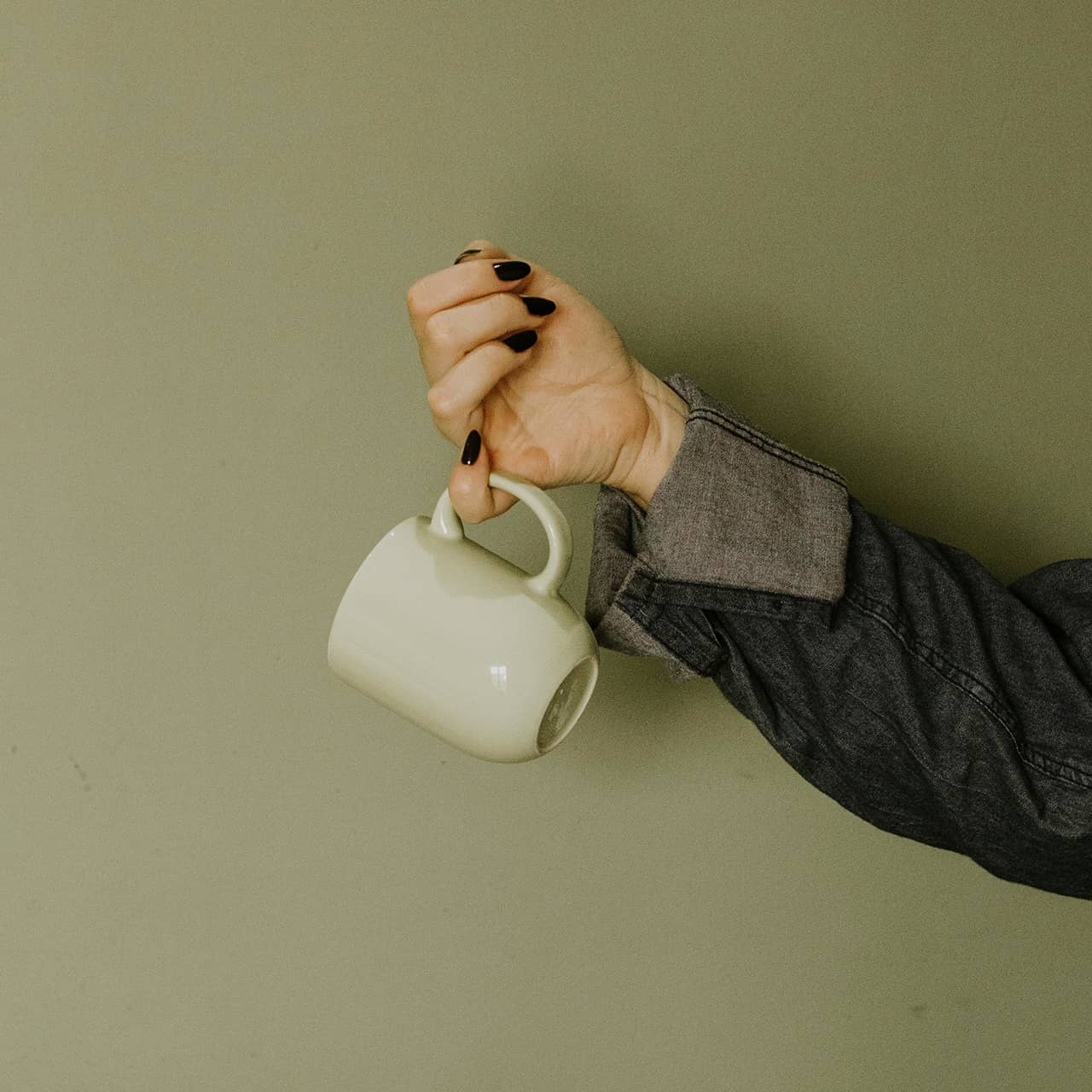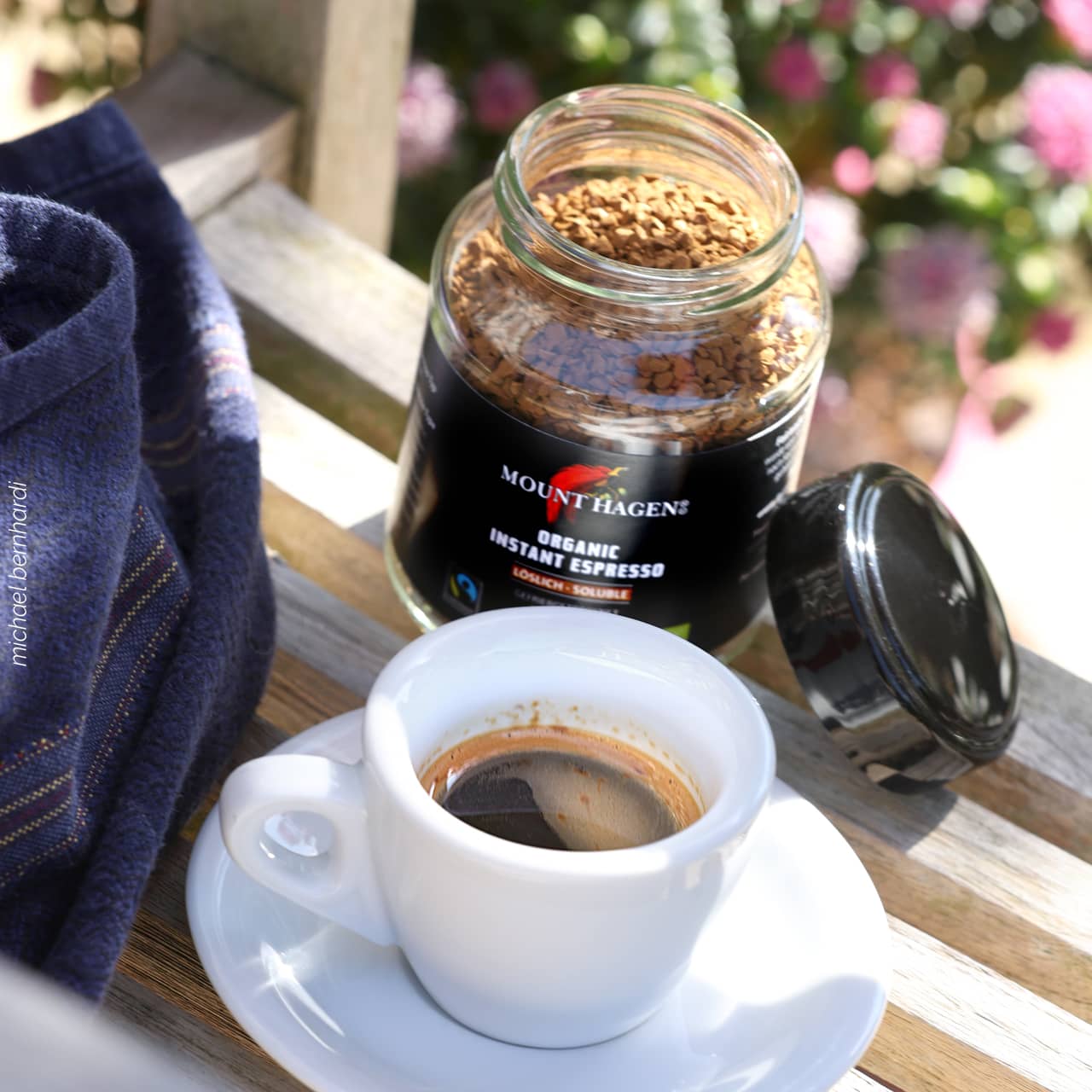Everything you always wanted to know about Mount Hagen coffee.
The answers to the most important questions about organic coffee, making coffee and everything else that’s important to you with your cup of coffee.
FAQ
Why does my coffee upset my stomach?
Arabicas are generally quite low in acidity, they only have between 3 and 6 percent chlorogenic acid. In comparison: Robustas have 10 or more percent of it. The growing region can also play a role: Our Single Origin from Peru, for example, is particularly mild (and also Demeter-certified).
Now to the roasting.
In principle, the longer beans are heated, the more acid is broken down. But, and this is important, they must also be gently roasted, otherwise they won’t be digestible. Our coffees are all roasted in drum roasters at around 200° for between 11 and 14 minutes. This allows them to fully develop their opulent aromas, while the acids become fine and elegant. They never disappear completely, nor should they, because then coffee tastes dull and musty. And here too, by way of comparison: industrial roasting takes a whole 2-5 minutes, takes place in huge facilities and produces beans that are slightly burnt on the outside but not yet ripe on the inside. You can also find out more about this in our encyclopedia.
That leaves the preparation.
If the grind is not right or does not match the preparation, coffee tends to turn sour. You can find out how fine or coarse the powder should be for which form of coffee brewing here in the “Coffee culture” chapter. There are of course many more tricks and tips on filter coffee & co.
But one thing is clear: if you have stomach problems, you don’t have to ban coffee completely from your life. A little care in the selection and preparation has saved many a morning.
Why is the coffee bitter?
“Coffee is too bitter for me”, we sometimes hear. Too bad. Because it’s not really him at all. But if it does, it is most likely due to the water being too hot when brewing.
The optimum water temperature is 92-96°C. So no more bubbling! Because then the coffee becomes bitter, even acrid. Which, by the way, is often one of the reasons why it doesn’t really taste good from the coffee machine. However, there are machines with seals of approval, e.g. from the European Coffee Brewing Center. This means you can be pretty sure that the brewing temperature is correct.
By the way: If the water is colder than 85°C, it doesn’t taste good either. The coffee seems watery, sometimes even sour.
Why is my coffee sour?
Too much acid in your coffee? It’s easy to avoid.
It may have been poorly roasted. Or – because this is guaranteed not to happen with a Mount Hagen – it hasn’t been prepared well. The fault most likely lies with the grind: it is probably too coarse. So try using a slightly finer ground powder next time. However, as the amount of coffee, grind and contact time influence each other during brewing, it would be best to use the same amount of coffee and pour the water over it just as slowly. Otherwise the comparison won’t work. Incidentally, the principle also applies to brewing with a coffee machine.
Why doesn't flower coffee taste good?
No, this is not coffee made from flowers – and not to be confused with grain coffee (not at all). Blümchenkaffee is a very, very thin filter coffee – or, to put it another way, it’s a plonk. Nobody needs it. If your coffee is too strong, very carefully reduce the amount of coffee powder (standard is 60 grams per 1 liter of water). Or simply drink a glass of water with it.
Coffee and nail polish remover? How does that go together?
…
The new Instant Espresso – small, quick, strong.
…





